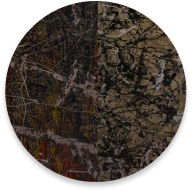LITERARY WORKS
WRITINGS BY BRAJO FUSO THAT HAVE REACHED US
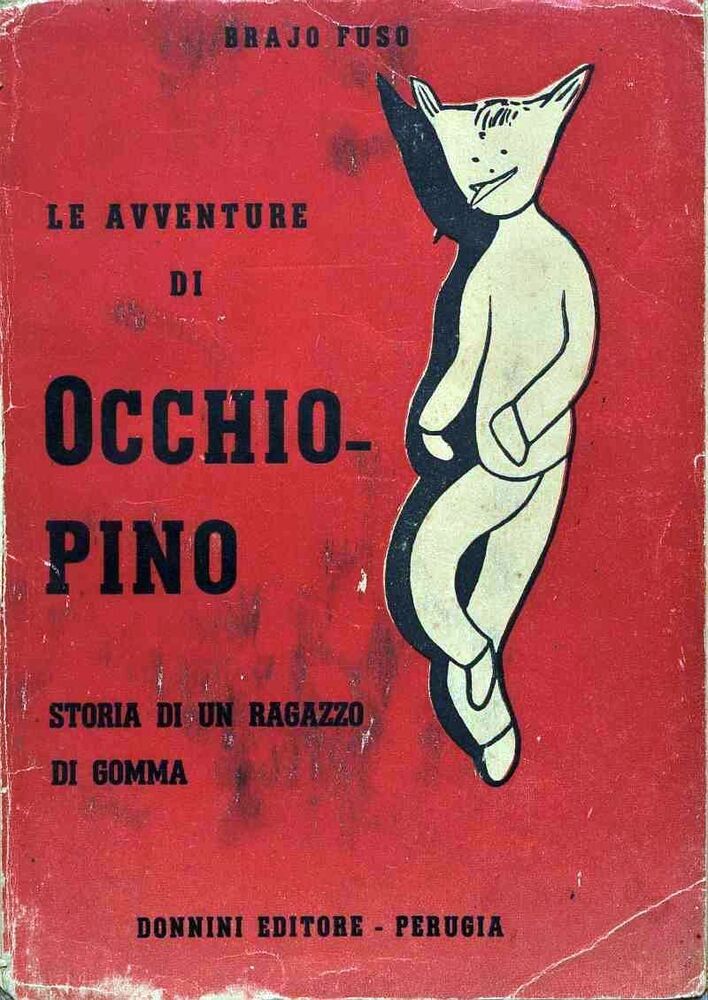
LE AVVENTURE DI OCCHIOPINO. STORIA DI UN RAGAZZO DI GOMMA (The adventures of Occhiopino. The tale of a rubber boy)
This literary work is a book for children entrusted by the author to the “big world of little ones”
. It is a draft partly typewritten, where Brajo Fuso added some corrections by hand. In the incipit it is possible to read: “Qui si parla di Cettone / che incontra Pecciolone / ed aver vuole un monello / che sia forte sano e bello. / Un bel bimbo venne, sì, / e Cettone ne gioì; / ma a Gesdèmone il sapiente / gli succede un accidente! / Or leggete la storiella / se vi piace, sarà bella.”
It is a clear reference to the tale of Pinocchio and the character of Geppetto, even if they have different names and the story has a different narrative development.
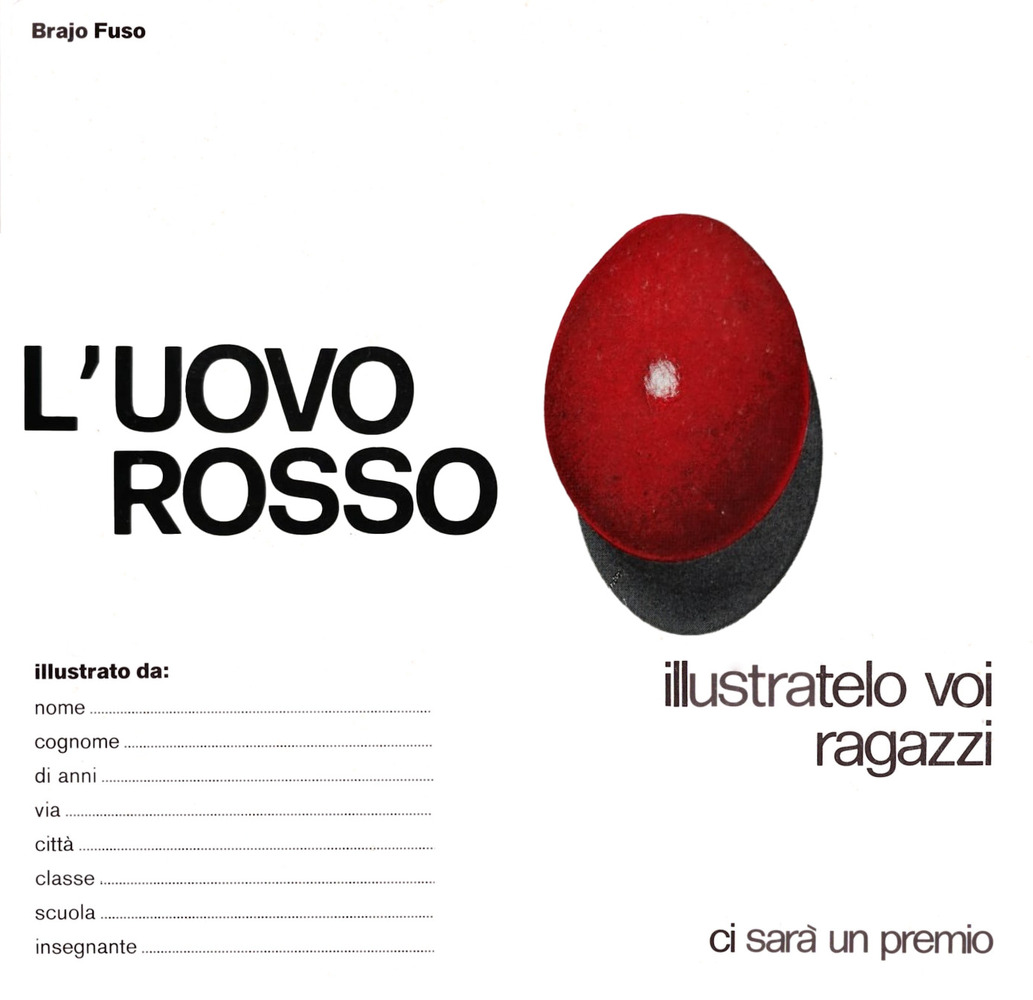
L’UOVO ROSSO (The red egg)
This book was written in 1938 and published in 1977. It is the story of a girl born from a red egg found in a field by a woman who went there to pick the salad for rabbits. This literary work is the result of a collection of imaginary stories narrated by Brajo Fuso to one of his little nieces for eleven nights. The plot is rich in particular characters that children “born in the space age”
can illustrate in the blank pages purposely left by the author.
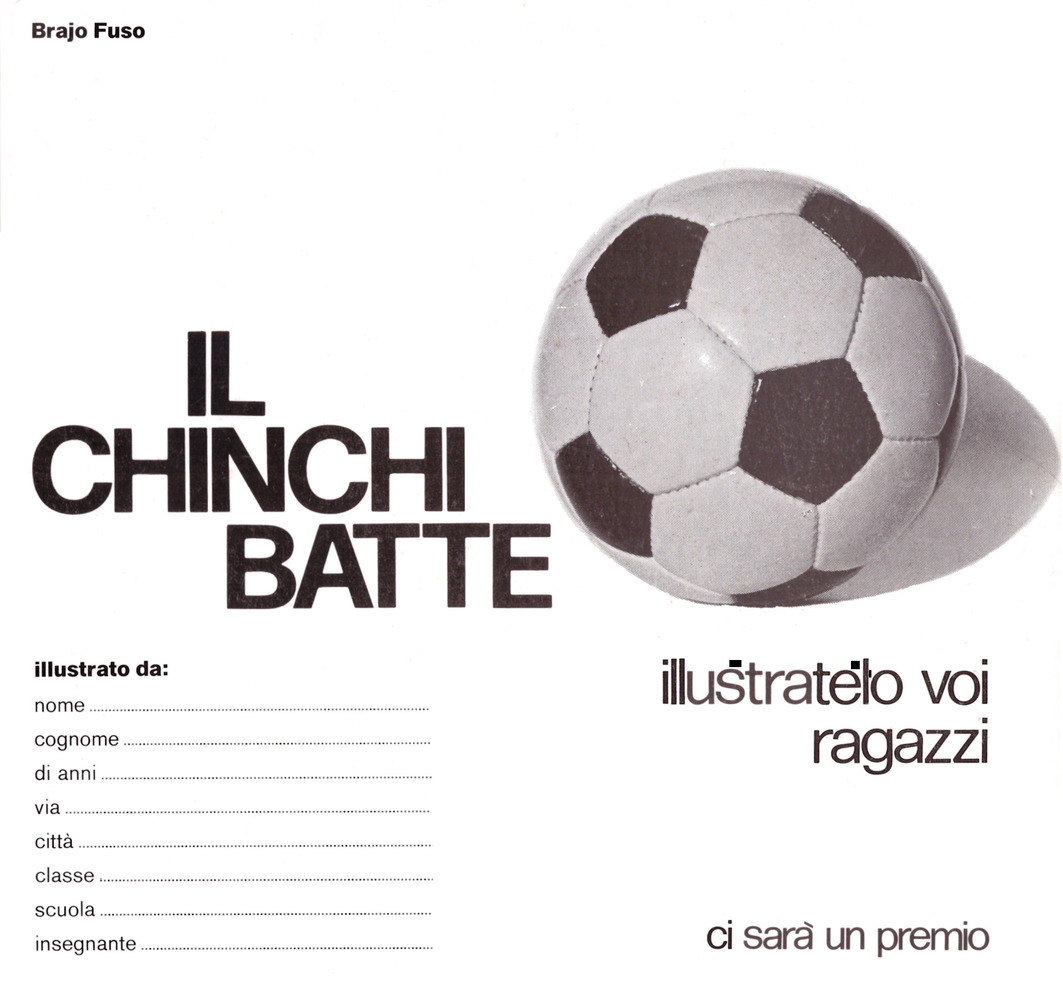
IL CHINCHIBATTE
Written in 1936 and published in 1977, Il Chinchibatte is a tale for children written in diary form. It is about the story of the young Bocciolino Radicugni Sadicospi and his reckless and lazy friends, with whom he forms Lo squadrone del Settebello (The Settebello football team). One day, they quit school and go in search of a great secret that only Dwarfs know, and this secret makes them unbeatable on the pitch.
The book has blank pages, and Brajo Fuso invites children to illustrate this tale.
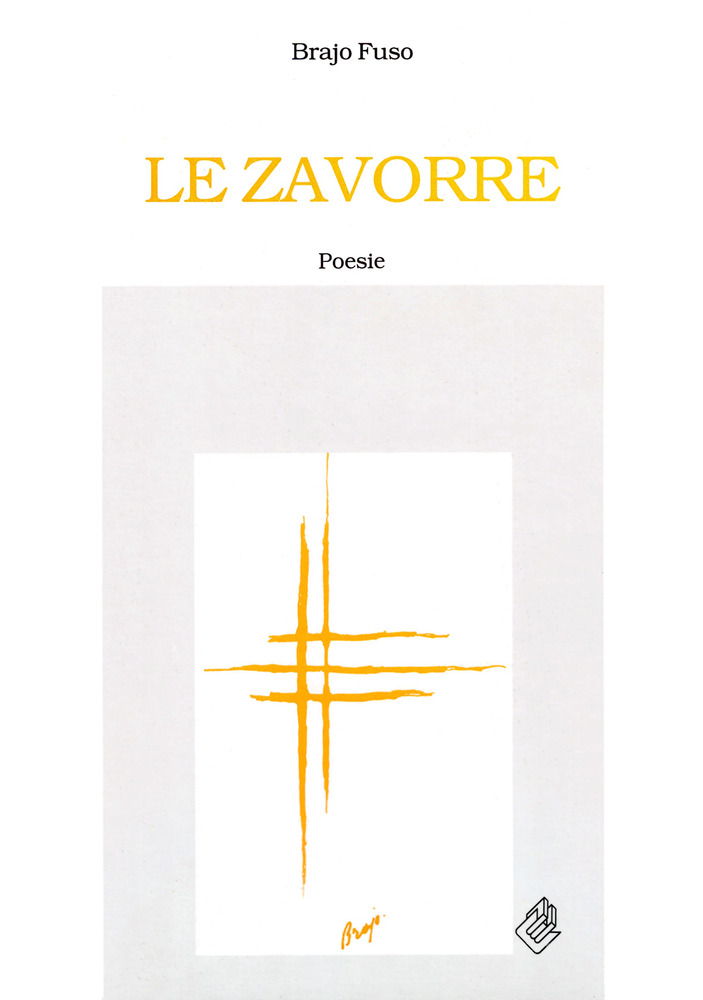
LE ZAVORRE
Published in 1980 after the death of the author, Le Zavorre is a collection of poems written by Brajo Fuso, selected by his heirs, Marcello Fringuelli and Adalgisa Mattiucci. In the book, the author alternates severe critics of the war, individualism and social degradation to speeches about nature, love for man and his ideals, about the consoling presence of a God outside rationality. Fuso changes meanings, combines words to make new ones and sometimes uses the dialect of Perugia when there is an urgent need to express himself.



